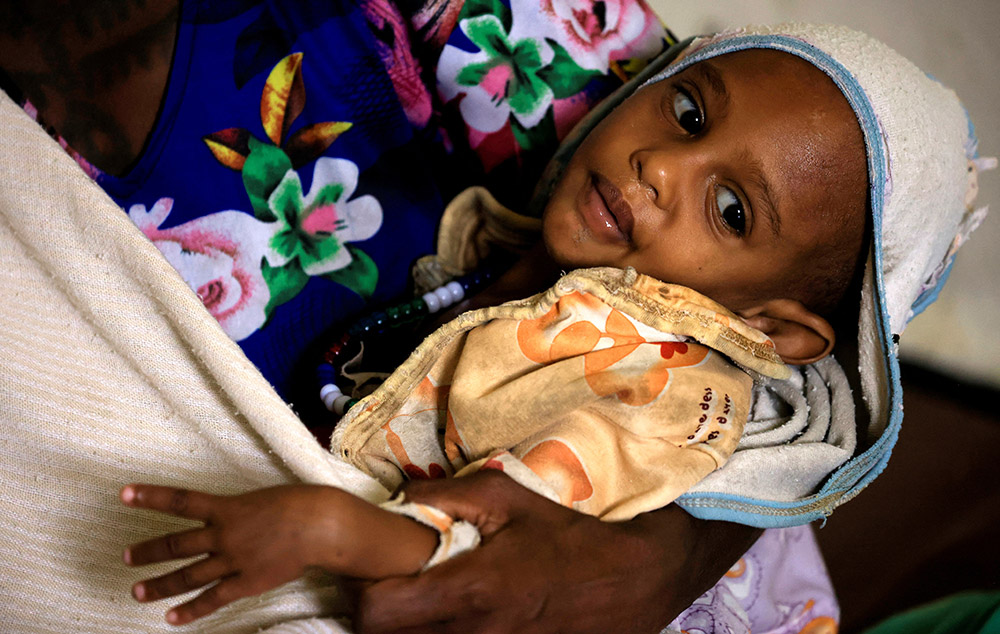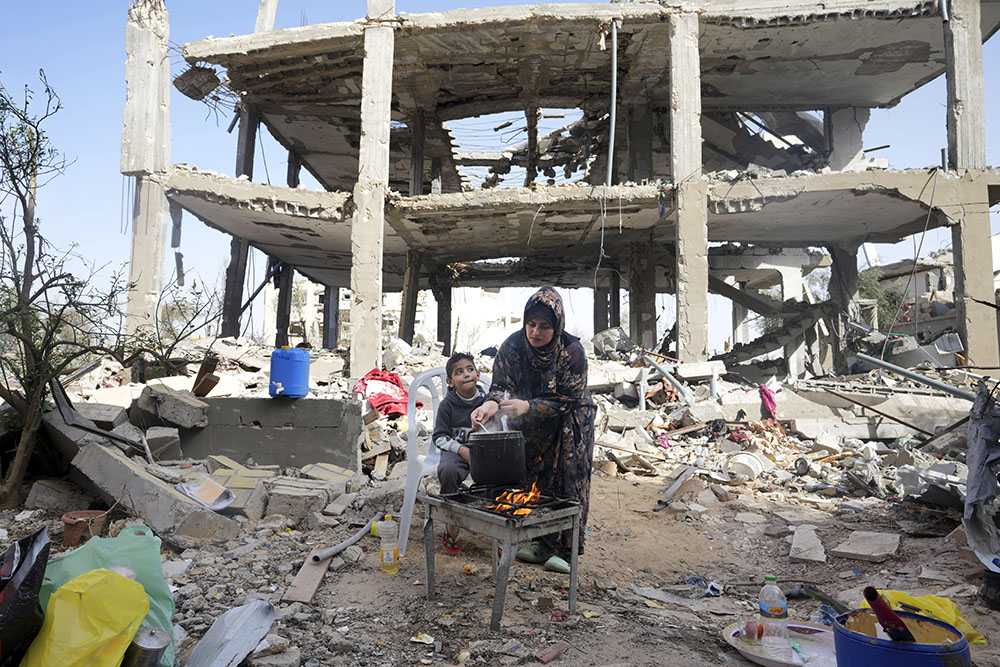The Meaning of Advent in Our Broken World?
Another liturgical year is ending this week. On Sunday, we will celebrate the First Sunday of Advent and, with it, a new church year.
This monthlong liturgical season tends to sneak up on many of us. It appears quickly, almost suddenly, after Thanksgiving and then passes by rapidly as days in the global north grow shorter, academic semesters wrap up, the shopping season accelerates and holiday travel schedules and seasonal stress push even the calmest people to a breaking point.
Given all of this, it can be difficult to acknowledge the presence of Advent, let alone take any time to reflect on its meaning and significance. It is for this reason that I thought it worthwhile to pause and reflect on the meaning of this season just days ahead of its start.
It will come as no surprise to regular readers of my column that one of my go-to wisdom figures is the late Trappist monk, social critic, mystic and author, Fr. Thomas Merton. He wrote two essays in the 1960s that I find myself returning to almost annually to renew my understanding of and appreciation for Advent.
Merton's 1963 article, "Advent: Hope or Delusion," which was later published in the book Seasons of Celebration, challenges Christians to think more deeply about what it is we are celebrating when we celebrate Advent and then Christmas. Do we embrace authentic Christian hope or do we reduce this liturgical time to a celebration of some kind of superficial and fleeting feeling of optimism?
The latter, which is what many Christians think the season is about, can too easily be experienced as a form of escapism from the realities of life and history.
On the contrary, as Merton writes: "In Advent we celebrate the coming and indeed the presence of Christ in our world. We witness to His presence even in the midst of all its inscrutable problems and tragedies. Our Advent faith is not an escape from the world to a misty realm of slogans and comforts which declare our problems to be unreal, our tragedies inexistent."
On occasions when Advent is considered, it's often viewed through the lens of what we might lightheartedly call the "Hallmark Channel Industrial Complex," by which I mean that we think of holiday songs sung by a warm hearth or an evening stroll during a light snow or a couple kissing under the mistletoe or the like. We are conditioned to think happy thoughts and prepare for the cosmic birthday party of the baby Jesus.
God does not call us to flee from this imperfect and hurting world but enter more deeply into it as we strive to work for social justice and peace after the example of Jesus Christ.
But this kind of thinking does a disservice to the radicality of what it is we actually celebrate as a faith community that exists in a broken and troubled world.
Merton explains:
The fact remains that our task is to seek and find Christ in our world as it is, and not as it might be. The fact that the world is other than it might be does not alter the truth that Christ is present in it and that his plan has been neither frustrated nor changed: indeed, all will be done according to his will. Our Advent is the celebration of this hope. What is uncertain is not the "coming" of Christ but our own reception of him, our own response to him, our own readiness and capacity to "go forth and meet Him."
Advent is not meant to draw our focus away from the world and all that disturbs us about it, from the violence of war in places like Ukraine or the Middle East, to the local instances of discrimination, exclusion or harm. Instead, Advent is a time to remember that God entered this world uncoerced and willingly, and that Christ's arrival as a vulnerable child is an act of solidarity with all people, but especially with those who are in the most precarious positions in society.

A mother carries her severely malnourished son at Samre Hospital in the Tigray region of Ethiopia June 23. (OSV News/Reuters/Tiksa Negeri)
In his 1965 essay, "The Time of the End Is the Time of No Room," which was published in the volume, Raids on the Unspeakable, Merton describes the modern context in striking terms. "We live in the time of no room, which is the time of the end. The time when everyone is obsessed with lack of time, lack of space, with saving time, conquering space, projecting into time and space the anguish produced within them by the technological furies of size, volume, quantity, speed, number, price, power and acceleration."
He highlights how fast-paced our lives are (and this was written in 1965!) and reminds us that it is precisely into this chaotic and wounded world that God chose to enter.
Furthermore, the Advent we celebrate is a waiting in joyful hope — and not for some helicopter divinity who is going to pop into history and fix everything up in one fell swoop. Instead, God embraced the most precarious of people, entering into solidarity with the marginalized and forgotten, the voiceless and disdained, by becoming one of them in time and space.
This is often forgotten in our instinct to imagine Advent and Christmas as times for cheery, naive and saccharine optimism, as opposed to the challenging yet authentic hope of Christianity. This real hope arises from our recognition that Christ draws near to us in our brokenness, loneliness and suffering.
This real hope is tied to the sober awareness that God does not call us to flee from this imperfect and hurting world but to enter more deeply into it as we strive to work for social justice and peace after the example of Jesus Christ.

Palestinian woman Hiyam Qudih cooks in front of her family's building destroyed in the Israeli bombardment of the Gaza Strip in the village of Khuza'a Nov. 26, on the third day of a temporary ceasefire between Hamas and Israel. (AP/Adel Hana)
Merton makes this claim about the true meaning of Advent and Christmas boldly and poetically when he writes:
Into this world, this demented inn, in which there is absolutely no room for Him at all, Christ has come uninvited. But because He cannot be at home in it, because He is out of place in it, and yet He must be in it, His place is with those others for whom there is no room. His place is with those who do not belong, who are rejected by power because they are regarded as weak, those who are discredited, who are denied the status of persons, tortured, exterminated. With those for whom there is no room, Christ is present in this world. He is mysteriously present in those for whom there seems to be nothing but the world at its worst. For them, there is no escape even in imagination. They cannot identify with the power structure of a crowded humanity which seeks to project itself outward, anywhere, in a centrifugal flight into the void, to get out there where there is no God, no man, no name, no identity, no weight, no self, nothing but the bright, self-directed, perfectly obedient and infinitely expensive machine.
As we begin the season of Advent this weekend, perhaps we might spend some time thinking about a celebration of hope that finds its meaning not in escapism or superficial optimism, but the powerful sign of divine love contained in God really entering the messiness, the painful, suffering, broken world in which we find ourselves.
This Advent, I will be thinking about what it means for Christ to enter this world in solidarity with the Israelis and Palestinians, Ukrainians and Syrians, Ethiopians and Afghans, and so many others caught in the violence of war and conflict; in solidarity with the LGTBQ+ community that continues to be marginalized, abused and killed, especially trans people of color; in solidarity with refugees, migrants and undocumented people seeking safety across the globe; and in solidarity with all others who are powerless or forgotten.
Most importantly, I want to spend time this Advent thinking about what it means to call myself a Christian during this season when Christ entered this world in solidarity with all those who do not belong and who are pushed to the margins of our church and society. How might we be more Christ-like this Advent and beyond?
What's Your Reaction?















